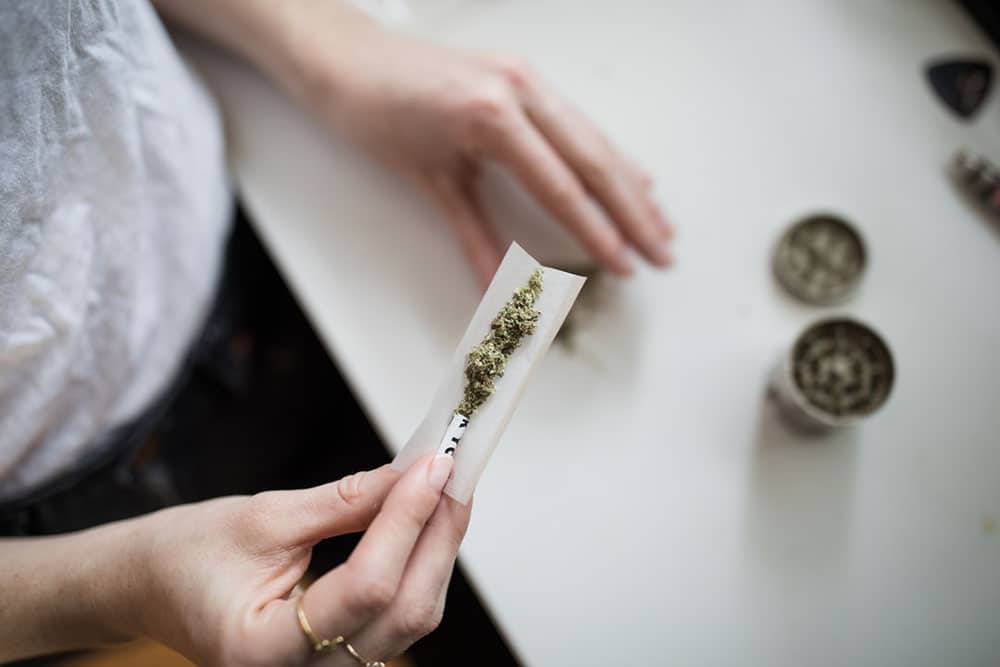Experiencing hangovers after heavy alcohol intake is a common and often unpleasant aftermath. Such hangovers are usually marked by symptoms like fatigue, headaches, and feelings of nausea or vomiting, making you feel quite unwell the next day.
In recent times, an unconventional solution that has been gaining traction is the use of cannabis. This article will delve into this emerging trend, scrutinizing the impact of smoking cannabis on typical hangover symptoms and evaluating the subjective accounts that endorse its usage.
It’s important to note that the effects of marijuana vary depending on individual factors such as tolerance, the potency of the cannabis used, and how it’s used. Some users report experiencing “weed hangovers,” or even “greening out” characterized by symptoms such as lethargy, brain fog, dry eyes, mild nausea, and difficulty focusing – similar to those of a traditional alcohol hangover. However, these effects are usually milder and less severe than those caused by alcohol.
What Causes Hangovers Anyway?
According to the National Institutes of Health, hangover symptoms can be traced back to a myriad of causes, including:
- The direct physiological impact of alcohol on the brain and other bodily organs
- The effects of alcohol withdrawal from these organs after consumption
- The physiological implications of by-products resulting from the metabolism of alcohol, particularly acetaldehyde
- Factors not directly related to alcohol such as the toxic influence of other bioactive substances (known as congeners) in the drink
- Behaviors connected to the drinking episode (for instance, use of other drugs, limited food consumption, and disruption of regular sleep patterns)
- Certain individual traits (like temperament, personality, and a family history of alcoholism).
How Can Marijuana Help With Hangover Symptoms?
A common manifestation of a hangover is a throbbing headache, typically resulting from the narrowing of blood vessels in the brain. Research suggests that consuming cannabis can influence these blood vessels, potentially mitigating this symptom.
The primary components of cannabis, THC and CBD, are thought to function as vasodilators – they can relax and expand blood vessels, subsequently decreasing the pressure that induces headaches.
Furthermore, gastrointestinal distress is a frequent complaint during a hangover, with nausea and vomiting being usual occurrences after indulging in excessive alcohol. Subjective reports propose that the use of cannabis can help soothe this unease.
THC, the mind-altering element in cannabis, is recognized for its anti-nausea properties, aiding in the suppression of nausea and vomiting. CBD, another significant constituent of cannabis, exhibits anti-inflammatory characteristics (often related to the qualifying conditions for a medical card in Florida), which could further assist in diminishing the discomfort associated with gastrointestinal issues.
Reducing Inflammation and Pain
Hangover symptoms often arise due to inflammation and pain in the body. Cannabis, known for its anti-inflammatory and analgesic properties, can help alleviate such discomfort, including headaches or migraines associated with hangovers.
Boosting Energy and Alertness
While marijuana is typically linked with relaxation, it also possesses stimulating effects. These can help boost energy and alertness levels, particularly beneficial for those feeling sluggish after a night of drinking.
Easing Nausea and Vomiting
Nausea and vomiting are common, yet distressing, hangover symptoms. Cannabis has been found effective in suppressing these symptoms, thus making a hangover more manageable.
Promoting Better Sleep
Alcohol is notorious for its sleep-disrupting capabilities, and poor sleep quality can intensify a hangover. Cannabis can enhance both the quality and duration of sleep, aiding in the alleviation of hangover symptoms.
Marijuana as a Treatment for Hangovers
Inhaling marijuana through smoking or vaping is a straightforward and immediate method to consume cannabis, offering prompt relief from hangover symptoms. It’s especially suitable for those struggling with nausea or vomiting who might find it difficult to keep food down.
However, it’s crucial to maintain hydration by drinking ample water. Alternatively, marijuana-infused edibles could be considered. While they may take longer to induce effects compared to inhalation, their relief tends to last longer.
Beginners should start with a low dosage and wait patiently, as the full effects can take an hour or more to kick in.
Another option is using marijuana tinctures or oils, which can be administered sublingually (beneath the tongue) and generally act faster than edibles. These products offer a convenient and unobtrusive way to use cannabis to alleviate hangover symptoms.
Traditional Methods for Treating Hangovers
While cannabis may offer some individuals respite from hangover symptoms, it’s crucial to explore other strategies for symptom reduction and recovery enhancement. One of the most straightforward yet potent methods to combat dehydration, a common consequence of excessive alcohol intake that often intensifies hangover symptoms, is simply drinking water. Keeping yourself well-hydrated can help curb headaches, dizziness, and exhaustion.
Besides hydrating with water, consuming foods or drinks rich in electrolytes can help replenish vital minerals lost during bouts of heavy drinking. Options like sports drinks, coconut water, and even bananas are excellent for restoring the body’s electrolyte equilibrium.
Non-prescription pain relievers, such as ibuprofen or aspirin, can also be beneficial in managing headaches and other discomforts linked to hangovers. However, it’s essential to steer clear of acetaminophen, which can put additional strain on the liver when mixed with alcohol.
Feeding your body a nourishing meal can provide the energy and nutrients necessary for hangover recovery. Opting for easily digestible foods like toast or crackers can help soothe an upset stomach.
Lastly, sufficient rest is paramount for your body to recuperate from the effects of alcohol consumption. Ensure you provide yourself with enough time to sleep and recover following a session of heavy drinking.
Have Questions About Obtaining a Medical Marijuana Card in Florida?
At Cannabis Doctor X- Medical Marijuana Doctor, our commitment is to streamline the process for patients in Florida to acquire their medical marijuana card. We achieve this by matching patients with a doctor who has a specific focus on medical marijuana treatments.
Our medical cannabis physician will promptly and efficiently assess if medical marijuana could be a beneficial treatment for you, based on your unique medical circumstances. Give us a call today to schedule an appointment, or ask any questions!
References:
https://www.ncbi.nlm.nih.gov/pmc/articles/PMC6800769/



